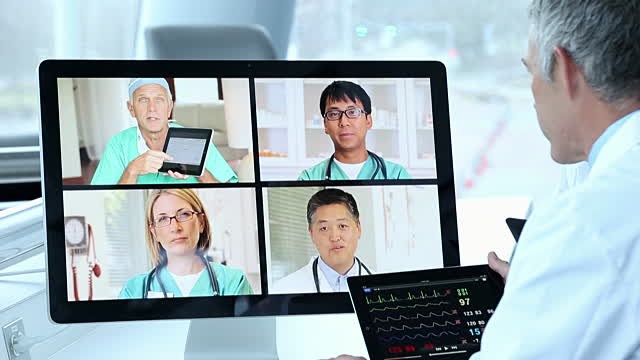Mobile Health Trends and Predictions in 2019
There is no doubt that the invention and use of technology are tremendously changing every industry in many ways. It has to be noted that as the globe becomes increasingly interconnected, the adoption of the technology has since become one of the defining aspects of the modern healthcare environment. It is indisputable that with digital transformation, people have been able to live longer and healthier lives. Just to mention but a few, modern technologies applied in the health sector has in a big way revolutionized patient care and solve issues such as healthcare data management, monitoring of chronic diseases, patient-to-doctor communication, routine process automation, patient adherence & treatment control, workflow optimization, among others. All these have been possible through the effective use of mobile health technologies.

Several trends shape the market for mobile health solutions. In fact, 2019 brings the expectations and predictions of the trends that tremendous impact on the entire industry for the next four quarters. At the moment, there are many exciting and innovative technology trends on the horizon, most of which are expected to make healthcare delivery a noble service that can be rendered anywhere anytime. In this regard, here are some greatest mobile health trends shaping the future of healthcare industry through 2019 and beyond:
1. Emergence of telemedicine.
One of the latest mobile health trends 2019 is indeed the development of telemedicine; a technology that allows doctors to attend patients from wherever they are using mobile devices installed with telemedicine apps. Patients are required to enter a conference call or meeting to get a medical prescription, check-ups, and any other medical attention without the need to travel on scheduled days to see a doctor physically. A report from one of the reputable survey firm shows that over 80 percent of physicians uphold the fact that telemedicine offers a better way to treat and manage chronic conditions than the conventional office visit. Since patient’s care can be offered anytime regardless of the geographic location, the new trend provides both a new wave of accessibility and freedom as well as saving money and time.
2. Telehealth apps now available for mobile devices.
In a bid to meet the ever-changing medical needs of a growing population, healthcare service providers are looking into unveiling telehealth services on mobile devices to allow people residing in remote areas receive health care attention. Telehealth in its best has not only increased access to healthcare services for patients in the countryside but has also helped deliver health support programs such as clinical education, thus improving clinical outcomes as well as reducing costs for patients. Many solutions are facilitating this latest health trend, one them being ezTalks Meetings, which offers seamless virtual communication services.
3. Artificial Intelligence (AI) is entering mobile health care industry.
AI is dignified to transform the whole healthcare delivery system soon, and in fact, there are several apps already showing in the mhealth industry. It is imperative to know that most mobile app developers are working tirelessly to design algorithms that not only capture patient’s data but can also use the same data to provide them with actionable insights. For instance, a doctor may recommend a patient to install a mobile app that collects information about heart rate, blood pressure, or even daily nutrition and exercise. Based on the information feed into the mobile app, the program analyzes, compute your progress, and make the necessary inductions/recommendations, while also sending the data to your doctor for further advice. Most of these AI apps trigger an alert to prompt both the physician and the patient to address a certain issue.
4. Mobile software will become an integral part of healthcare continuum.
It is not only 2019, but also mobile health trends 2019 will see more health care providers than ever before trying to recommend their patients to download and install mobile apps to help them manage chronic diseases and other health related issues. Mobile solutions provide patients with a plethora of tools to actively engage and involved in streaming the delivery of care and in their health management. From solutions that use wireless sensors to collect crucial health data to telemedicine or telehealth tools that connect patients with doctors remotely via video chat for medications, to electronic records software that gives healthcare providers the vital information required for diagnosis, and much more. All these apps have already become familiar the industry and soon is expected to be launched, which will transform healthcare from a traditional scheduled-doctor visit to service delivery right on mobile phone anytime anywhere.
Conclusion
In a nutshell, mobile health is a comparatively new phenomenon in the healthcare environment. That notwithstanding, the trend has massive potentials of becoming one of the most effective options for delivering better and positioned health services. As providers look forward to enhancing their abilities to diagnose and evaluate patients by phone, 2019 has already seen a good number of great mobile health solutions.